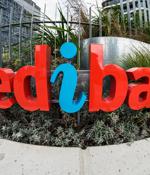Security News

A bunch of Android OEM signing keys have been leaked or stolen, and they are actively being used to sign malware. Ukasz Siewierski, a member of Google's Android Security Team, has a post on the Android Partner Vulnerability Initiative issue tracker detailing leaked platform certificate keys that are actively being used to sign malware.

Australian health insurer Medibank's prognosis following an October data breach keeps getting worse as criminals dumped another batch of stolen customer data on the dark web. Medibank said it's still analyzing the leaked data, which includes six "Sipped files in a folder called 'full' containing the raw data that we believed the criminal stole."

Australian health insurance provider Medibank has confirmed that another batch of the customer data stolen in the recent breach has been leaked. Medibank is making an effort to minimize the bad news, somewhat, by saying that much the data leaked is incomplete and hard to understand.

Over 5.4 million Twitter user records containing non-public information stolen using an API vulnerability fixed in January have been shared for free on a hacker forum. Last July, a threat actor began selling the private information of over 5.4 million Twitter users on a hacking forum for $30,000.
![S3 Ep109: How one leaked email password could drain your business [Audio + Transcript]](/static/build/img/news/s3-ep109-how-one-leaked-email-password-could-drain-your-business-audio-transcript-small.jpg)
Click-and-drag on the soundwaves below to skip to any point. You can listen to us on Soundcloud, Apple Podcasts, Google Podcasts, Spotify, Stitcher and anywhere that good podcasts are found.

Australian health insurance giant Medibank has warned customers that the ransomware group behind last month's breach has started to leak data stolen from its systems. The attackers, linked to the REvil cybercrime gang, have leaked a wide range of information so far, including Medibank customers' private and health data and, according to WhatsApp screenshots, negotiation chats with the health insurer's security operations team and CEO David Koczar.

According to these internal documents, SIAM is a computer system that works behind the scenes of Iranian cellular networks, providing its operators a broad menu of remote commands to alter, disrupt, and monitor how customers use their phones. The tools can slow their data connections to a crawl, break the encryption of phone calls, track the movements of individuals or large groups, and produce detailed metadata summaries of who spoke to whom, when, and where.

The Iranian Atomic Energy Organization has confirmed that one of its subsidiaries' email servers was hacked after the ''Black Reward' hacking group published stolen data online.AEOI says an unauthorized party from a specific foreign country, which is not named, stole emails from the hacked server, which consisted of daily correspondence and technical memos.
A hospital network in Wisconsin and Illinois fears visitor tracking code on its websites may have transmitted personal information on as many as 3 million patients to Meta, Google, and other third parties. Advocate Aurora Health reported the potential breach to the US government's Health and Human Services.

Intel has confirmed that a source code leak for the UEFI BIOS of Alder Lake CPUs is authentic, raising cybersecurity concerns with researchers. On Friday, a Twitter user named 'freak' posted links to what was said to be the source code for Intel Alder Lake's UEFI firmware, which they claim was released by 4chan.